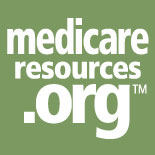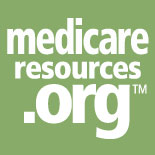House|Senate
114th Congress, Vote 376; House of Representatives #1190
Protecting Seniors' Access to Medicare Act of 2015
Official Title: To repeal the provisions of the Patient Protection and Affordable Care Act providing for the Independent Payment Advisory Board.
HR 1190: Repealing the Independent Payment Advisory Board (IPAB)
Passed by the House Jun 23, 2015, 244-154 (35 abstaining).
Synopsis: The ACA established the Independent Payment Advisory Board (IPAB), a panel of 15 health care experts tasked with recommending cost-containment measures if annual Medicare per-capita spending growth is projected to exceed a target rate.
Despite the fact that the IPAB was the basis for the "death panel" fear-mongering from ACA opponents, the IPAB's recommendations cannot call for the rationing of care, reduction of benefits, or anything that would shift costs onto Medicare beneficiaries.
Prior to 2020, the IPAB would not be able to recommend payment cuts to hospitals, home health agencies, long-term acute care facilities, or hospices, although payment cuts to physicians would be allowed. It's important to note however, that the IPAB would be able to draft creative, thoughtful solutions to spending problems. As an example, it could recommend increasing payments for the most cost-effective treatments as a way to encourage those treatments. In other words, it has more tools available than simply cutting provider reimbursements.
CMS is responsible for projecting the coming year's projected Medicare spending growth rate, and if it is expected to exceed the target amount, the IPAB would develop a proposal for spending cuts. The IPAB was originally set to convene in 2014, but the projected Medicare spending growth rate for 2014 was low enough that no action was necessary. IPAB panel members are to be appointed by the President and confirmed by the Senate, but as of mid-2015, there have been no appointments.
Under existing law – since the IPAB has not yet convened – changes to Medicare spending are recommended by the Medicare Payment Advisory Commission (MedPAC), but must be approved by Congress in order to be implemented, as MedPAC has no regulatory authority.
Under the ACA, if Congress fails to pass other measures to create the required spending cuts, recommendations made by the IPAB would be implemented automatically unless they are rejected by a supermajority vote in Congress.
The House previously passed a bill that included IPAB repeal in 2012, but it didn't advance in the Senate, which had a Democratic majority at the time.
Why supporters pushed for this bill
- Since the IPAB is not permitted recommend cost-sharing, eligibility, or benefit modifications, critics note that none of the cost-savings will be generated through reduced utilization of healthcare. They believe the IPAB has few options other than reducing payments to providers, and there is concern that some physicians might opt out of Medicare if that happens. The American Medical Association and many other physician organizations have long called for repeal of the IPAB.
- Some opponents of the the IPAB see it as unfairly targeting physicians, since hospitals and other healthcare facilities are initially exempt from IPAB recommendations (although it should be noted that the IPAB is not expected to have to make any recommendations during the first few years, due to low projected Medicare spending growth).
- Since IPAB panel members are appointed rather than elected, they would not be accountable to voters. IPAB opponents initiated a lawsuit claiming that the IPAB would illegally remove power from Congress; in March 2015, the Supreme Court declined to hear it.
Why opponents tried to stop the bill
- The IPAB could help usher in common-sense financial reforms for Medicare spending that might not otherwise make it through Congress due to heavy lobbying from special interest groups (things like competitive bidding for Medicare-funded durable equipment, and allowing Medicare to negotiate drug prices with manufacturers have been shut down in the past by special interest lobbying).
- The Congressional Budget Office estimated that repealing the IPAB would result in $7.1 billion in increased spending during the 2022 to 2025 period, although CBO predicted no budgetary impact between 2015 and 2021. (The IPAB is not expected to have to make cost-cutting recommendations during those years due to low projected spending growth.)
- The Center for Budget and Policy Priorities explains that the IPAB will be an effective cost-containment program, and that concerns about the IPAB usurping control from Congress are overblown, since Congress would have the option to implement their own proposals, as long as they contain adequate cost-saving measures.
- IPAB supporters note that it's meant to be a fail-safe rather than a primary means of cost-containment. A primary tenant of the ACA is to transition Medicare payments away from fee-for-service and towards more value-based payment systems. The IPAB would only have to step in if that doesn?t work.
- Advocates of repealing the IPAB have not proposed a viable alternative that would achieve the cost-containment necessary for the long-term solvency of the Medicare program. Repealing the IPAB would make the introduction of a privatized Medicare system (eg, vouchers) more likely, and thus shift far more costs onto beneficiaries.
| 06/23/2015 | Status: House passed |
More: select a member to see his or her other key Medicare votes.
| Not Voting (35) | ||
|---|---|---|
| R | Robert Aderholt | AL |
| D | Raúl Grijalva | AZ |
| D | Ann Kirkpatrick | AZ |
| D | Judy Chu | CA |
| R | Paul Cook | CA |
| D | Jared Huffman | CA |
| D | Zoe Lofgren | CA |
| D | Grace Napolitano | CA |
| R | Dana Rohrabacher | CA |
| D | L. Roybal-Allard | CA |
| D | Loretta Sanchez | CA |
| D | Maxine Waters | CA |
| D | Joe Courtney | CT |
| D | Corrine Brown | FL |
| R | Ron DeSantis | FL |
| D | Alan Grayson | FL |
| D | Frederica Wilson | FL |
| R | Lynn Westmoreland | GA |
| D | Luis Gutiérrez | IL |
| R | Ann Wagner | MO |
| R | Trent Kelly | MS |
| D | Donald Payne | NJ |
| D | Dina Titus | NV |
| D | Eliot Engel | NY |
| D | Hakeem Jeffries | NY |
| D | Grace Meng | NY |
| R | Steve Russell | OK |
| R | Tom Marino | PA |
| D | James Clyburn | SC |
| R | Stephen Fincher | TN |
| R | John Carter | TX |
| D | Joaquin Castro | TX |
| D | Sheila Jackson Lee | TX |
| R | Kenny Marchant | TX |
| D | Filemon Vela | TX |



